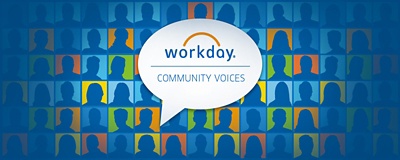Longshore:As you go through a deployment like this, try to make all business processes as simple as possible. Cut out extraneous steps. As you look at each part of an approval process, ask yourself what value a certain step has in the bigger picture. We tried to do that, but still found that we had a lot of overly burdensome business processes that weren’t adding value. Six months later we’re starting to reevaluate some of these business processes and are making some modifications. Luckily, Workday makes it easy to adjust as these needs change.
Niparko:Don’t be afraid of change. Take a critical look at the way you’ve been doing things—the processes, transactions, etc.—and take this opportunity to improve them. Government organizations are built on stability and moving forward methodically and purposefully. We’re not built upon a culture of constant change like you would find in the private sector. However, if you don’t take that critical look and challenge the status quo, you won’t maximize the benefits that applications like Workday can provide.
Interested in learning how to future-proof your government agency? Watch thewebinar replaywith Governing Institute and Workday to gain practical advice and strategies on how to move administrative processes to the cloud.






